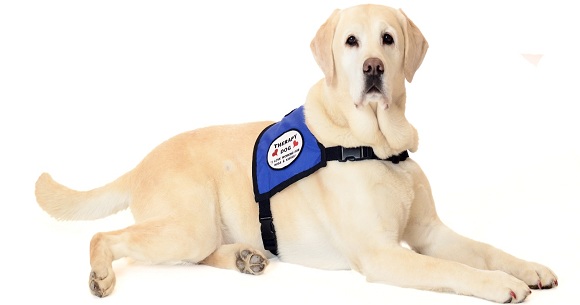It is true that both therapy dogs and companion dogs can be your best friend and constant companion. A companion dog is just another word for a family dog. While a therapy dog is a dog providing emotional comfort to seniors, sick people, the disabled, and others who may need some emotional support.
Therapy Dog
A therapy dog breeding can be found in nursing homes, hospitals, prisons, schools, etc. They help people soothe the painful conditions that can normally be seen in disaster areas due to natural hazards such as tornadoes, floods, and earthquakes. Therapy dogs are specifically trained to provide affection and comfort to people in need. They are well known for their temperament and personality. They are patient, friendly, safe, gentle, and easy in almost all situations. They love people and truly enjoy being around people while being hugged, kissed, and petted.
Virtually any breed of dog, large or small, young or old, can be a qualified therapy dog. However, not all dogs have the personality needed to be successful at it. It is the job of a therapy dog to comfort those who need emotional support, and both the dog and the individual should enjoy this connection.
People are often confused about the differences between therapy dogs breeding and service dogs. Therapy dogs are not defined or protected by federal law, though some states do have laws granting limited accommodation to therapy animals. They don’t provide direct assistance to people with disabilities, so this is why some institutions may limit and prohibit access by therapy dogs. While service dogs are assistance dogs specifically trained to help people with disabilities. Americans with Disabilities Act (ADA) defines a service animal as any dog that is individually trained to do work or perform tasks for the benefit of an individual with a disability, including a physical, sensory, psychiatric, intellectual, or other mental disability and dog breeding.
There are organizations that offer some testing and accreditation for therapy dogs to ensure that the dog is qualified. Qualified dogs are found to be positive in people, have good manners in public places, in good health with vaccines to date, and always obey the command of the owner. The most important thing is that the dog should not be aggressive. Some dog daycare centers or shelters may use kennel software to track the information about their therapy dogs to make sure they’re in good health.
Where to get Therapy Dogs
Most shelters and rescue groups offer therapy dogs, but you have to be very careful. It is important for you to take your time to choose the dog that suits you the best. Consider speaking with the staff and volunteers about what you really need.

 +1 (312) 239-3599
+1 (312) 239-3599